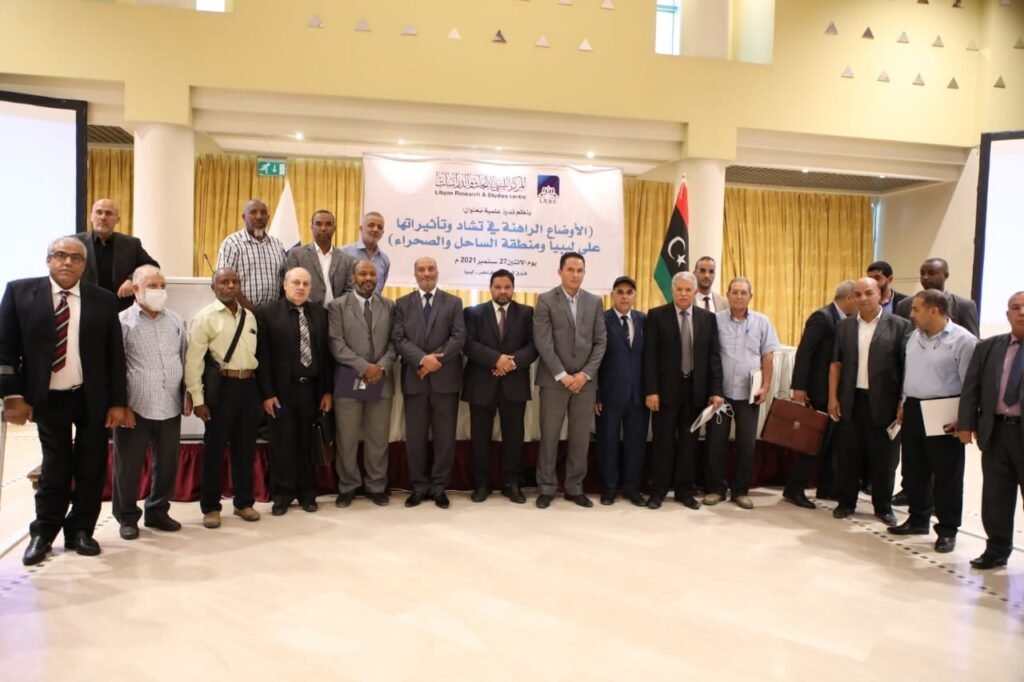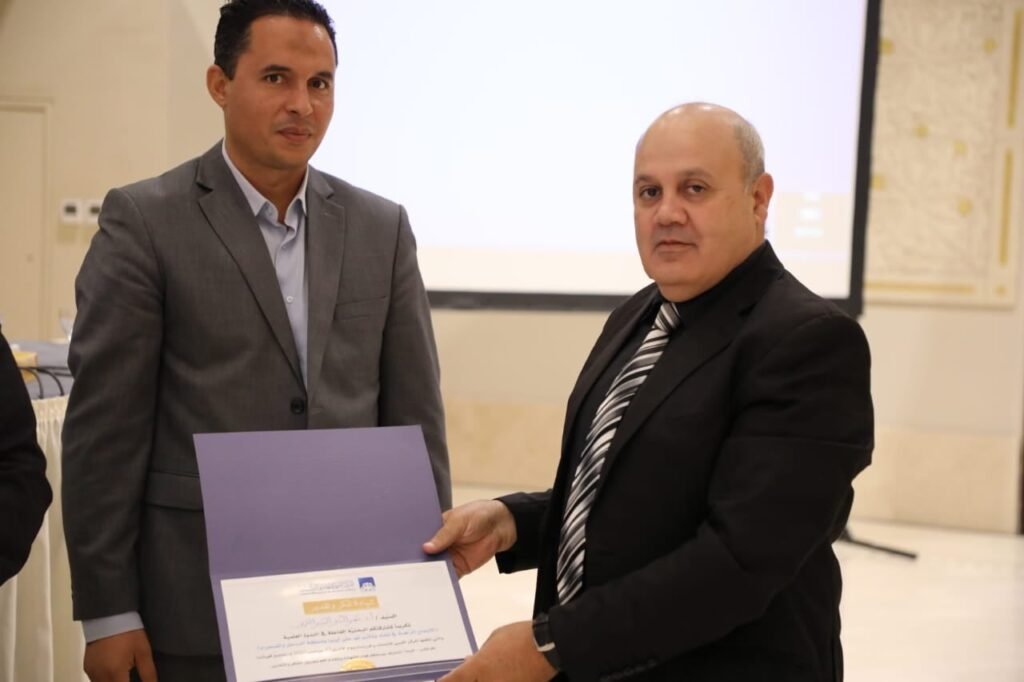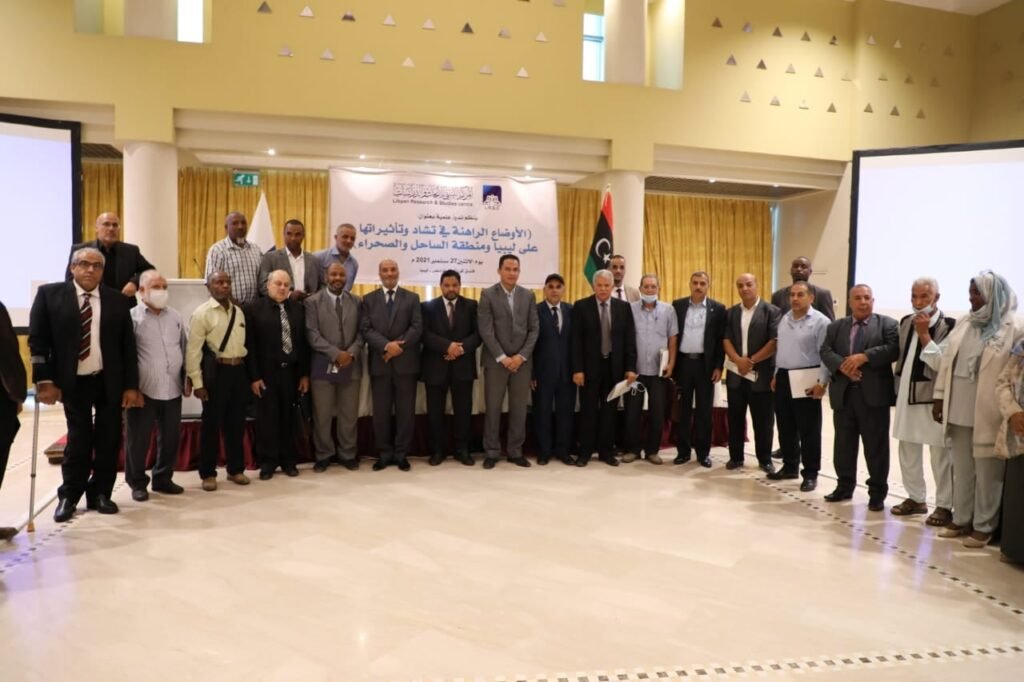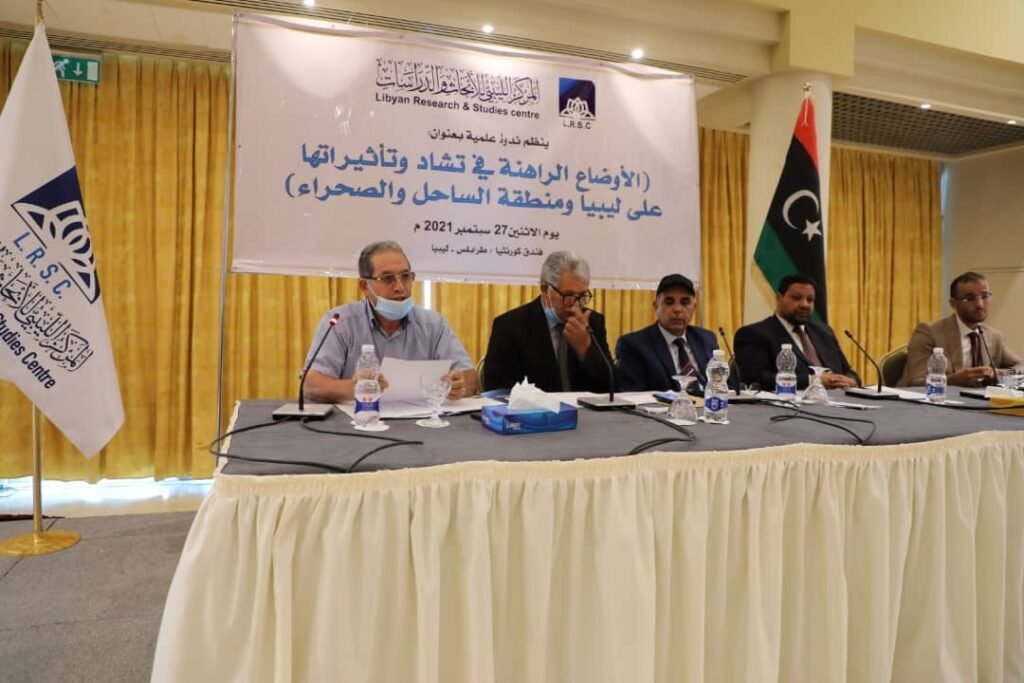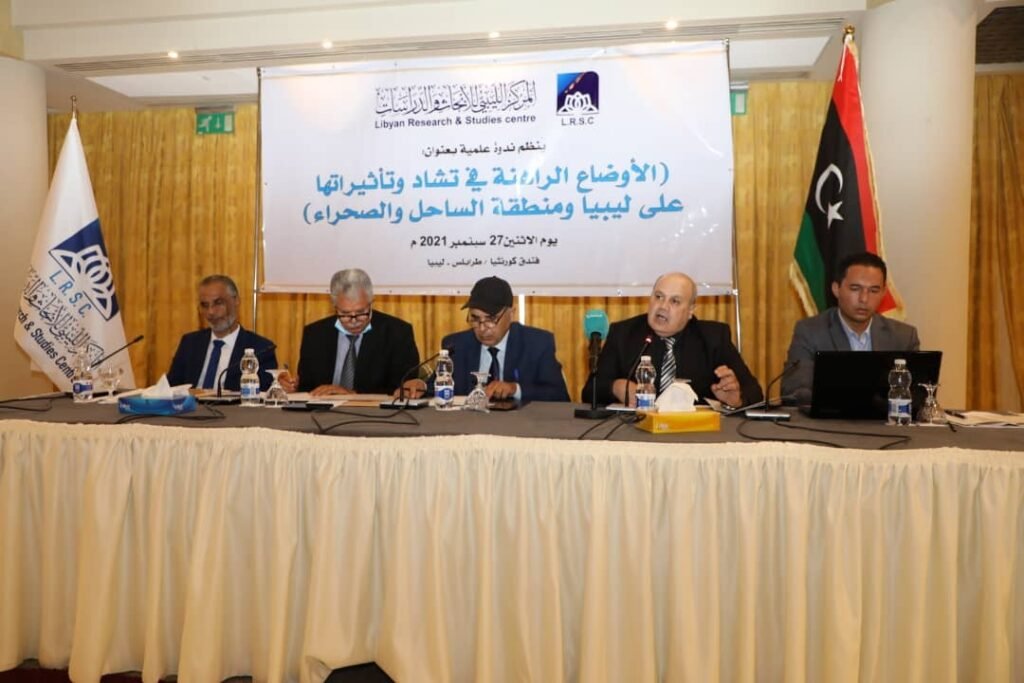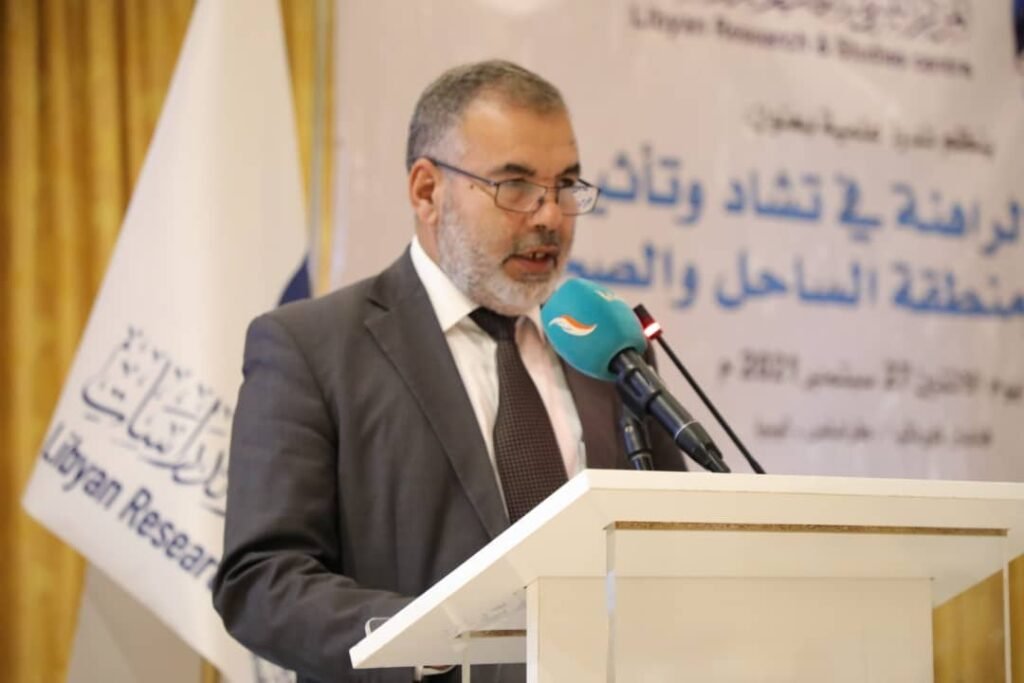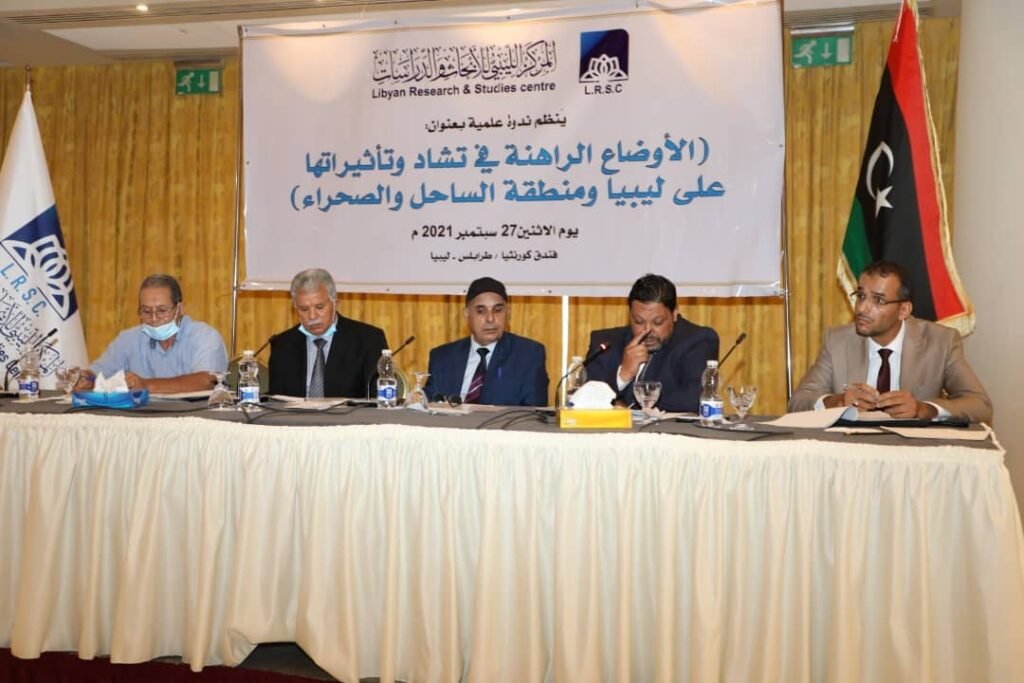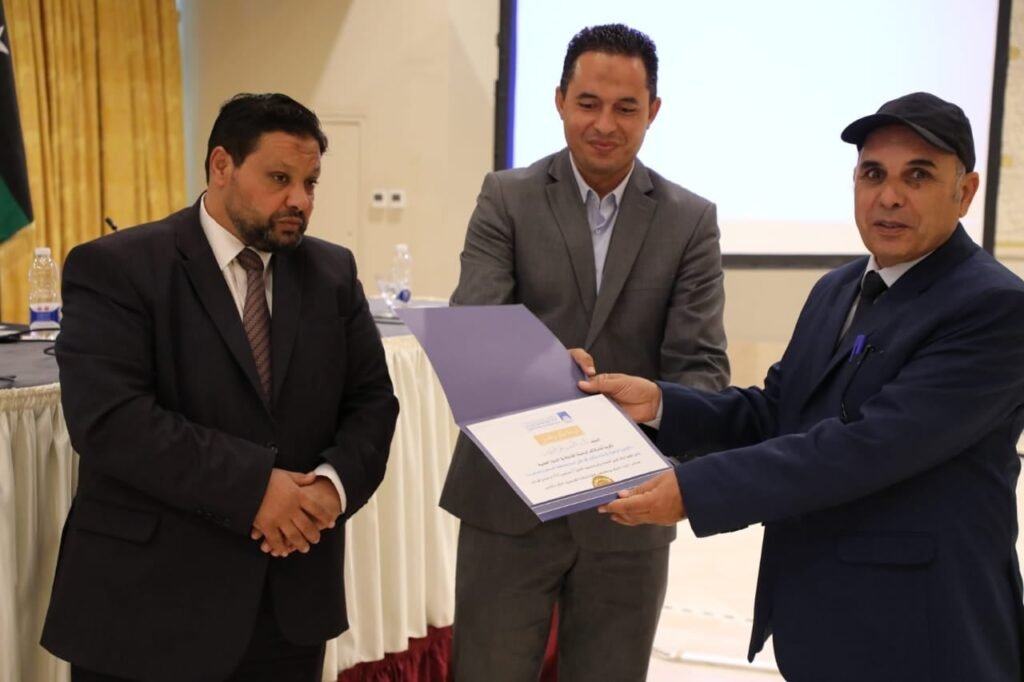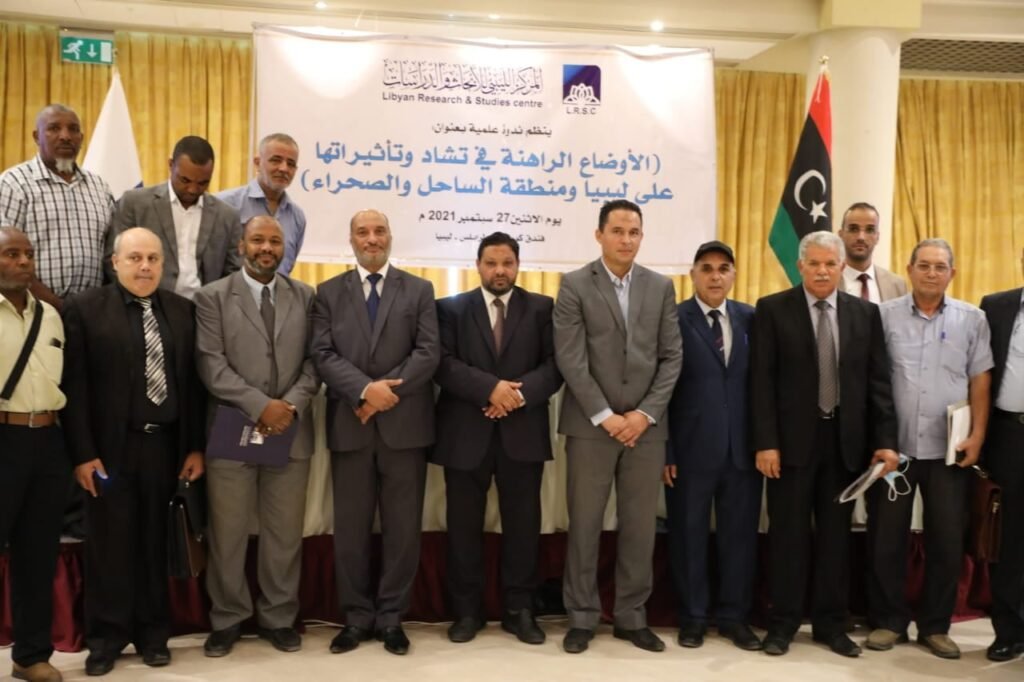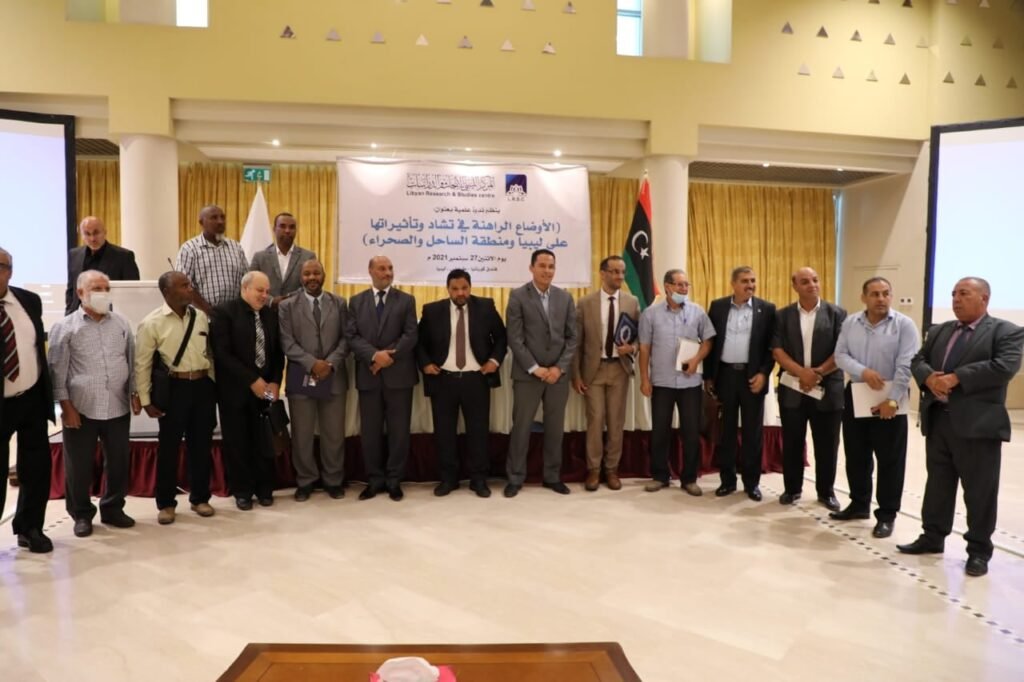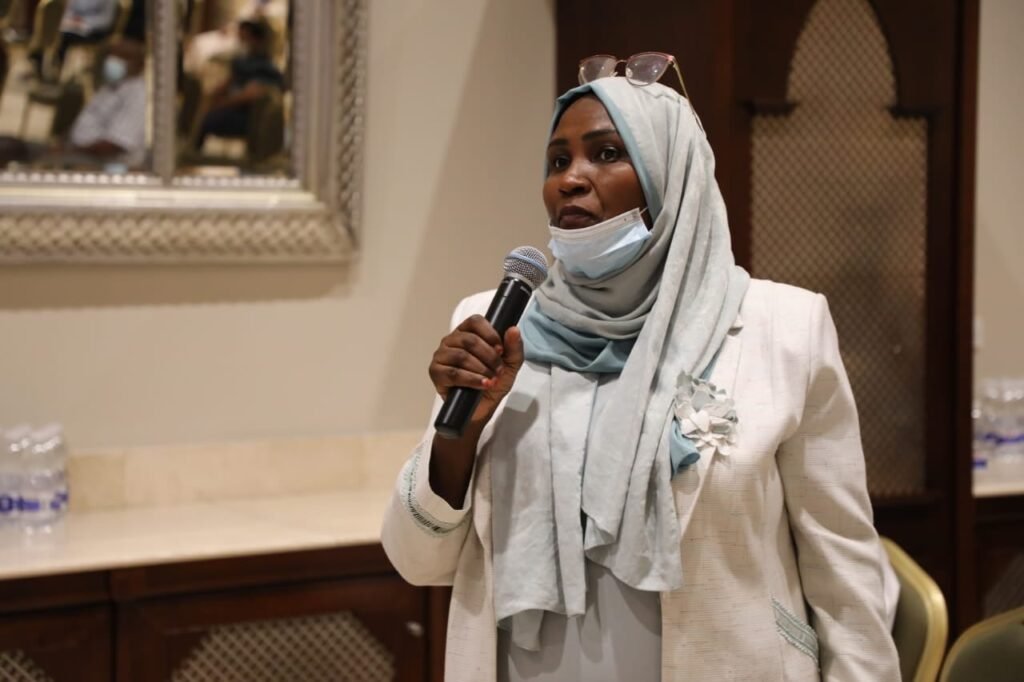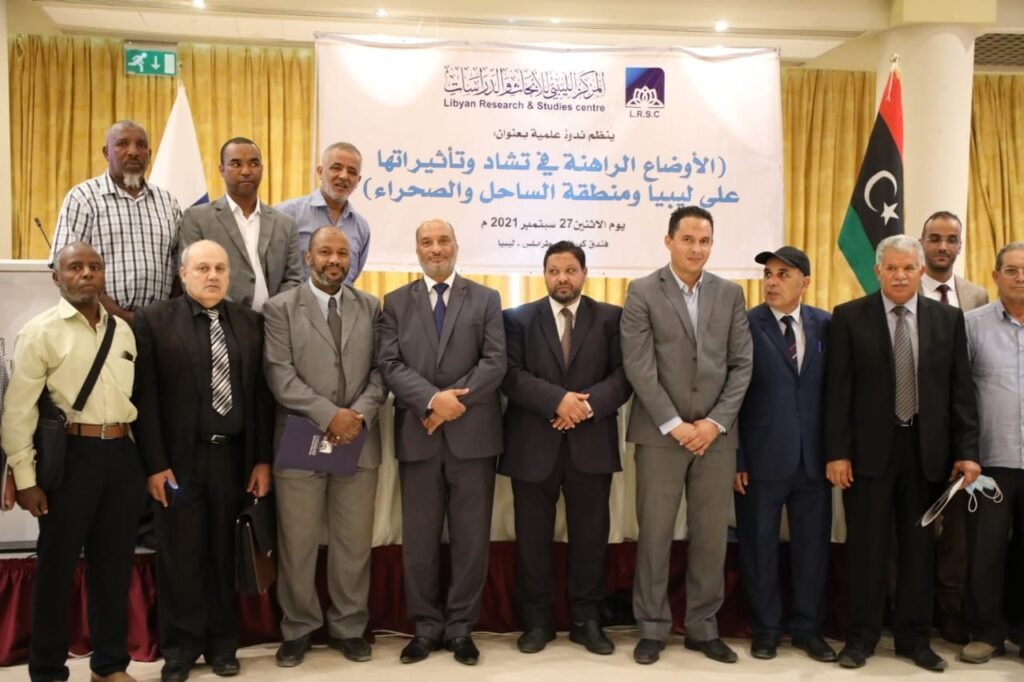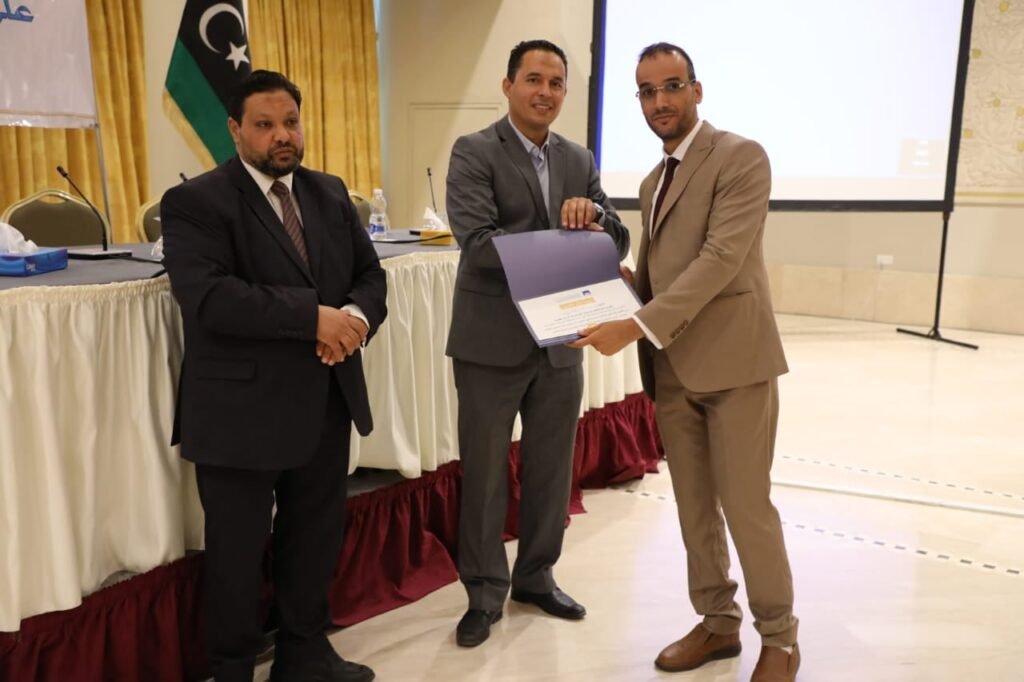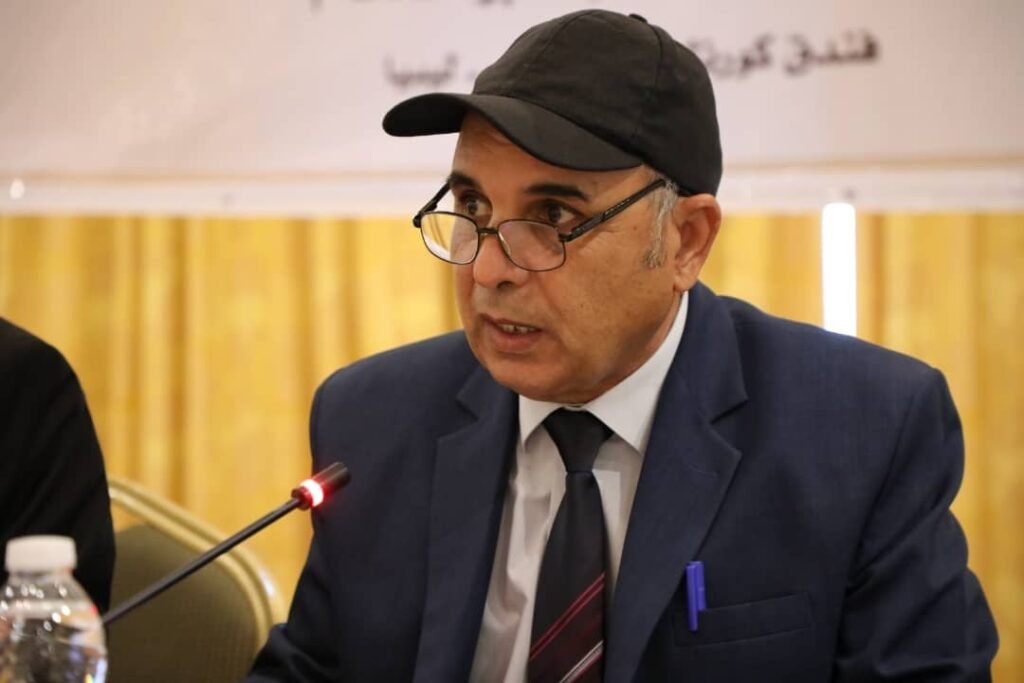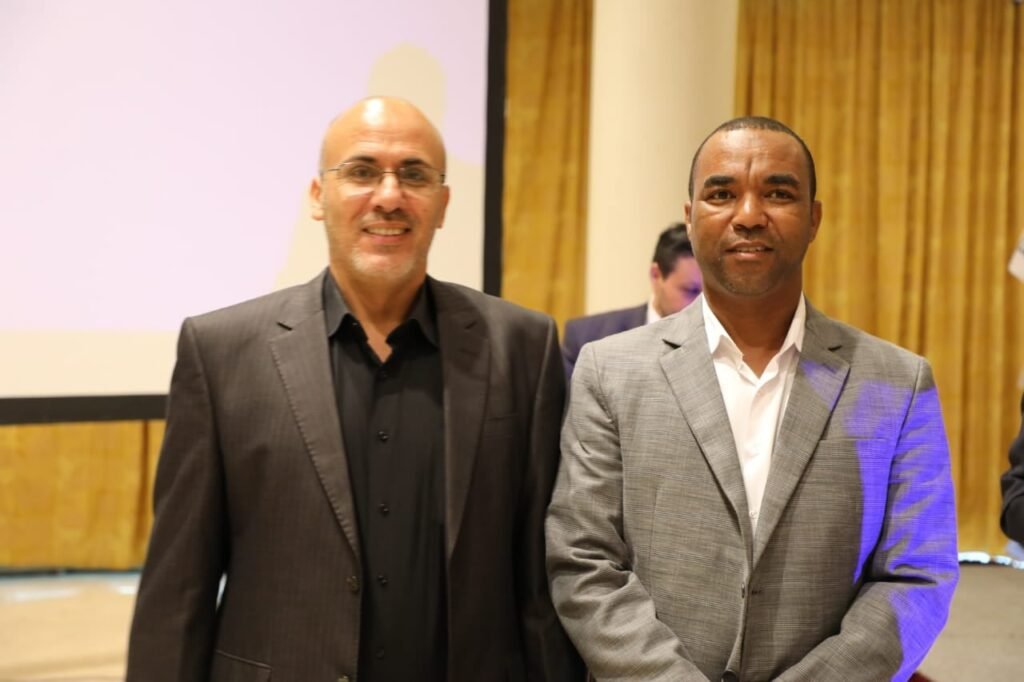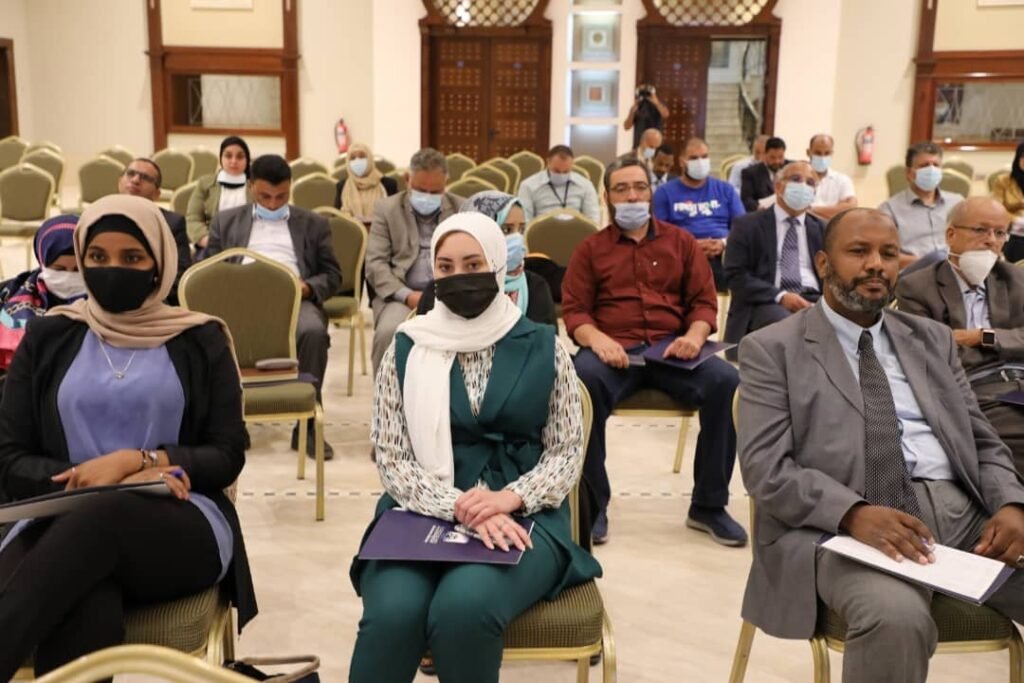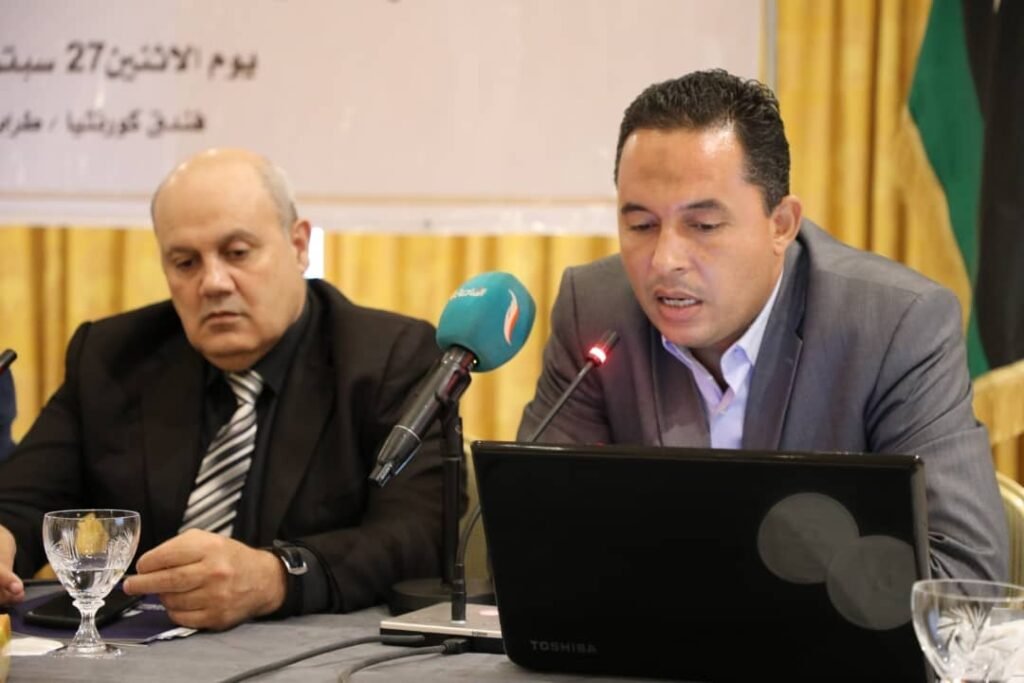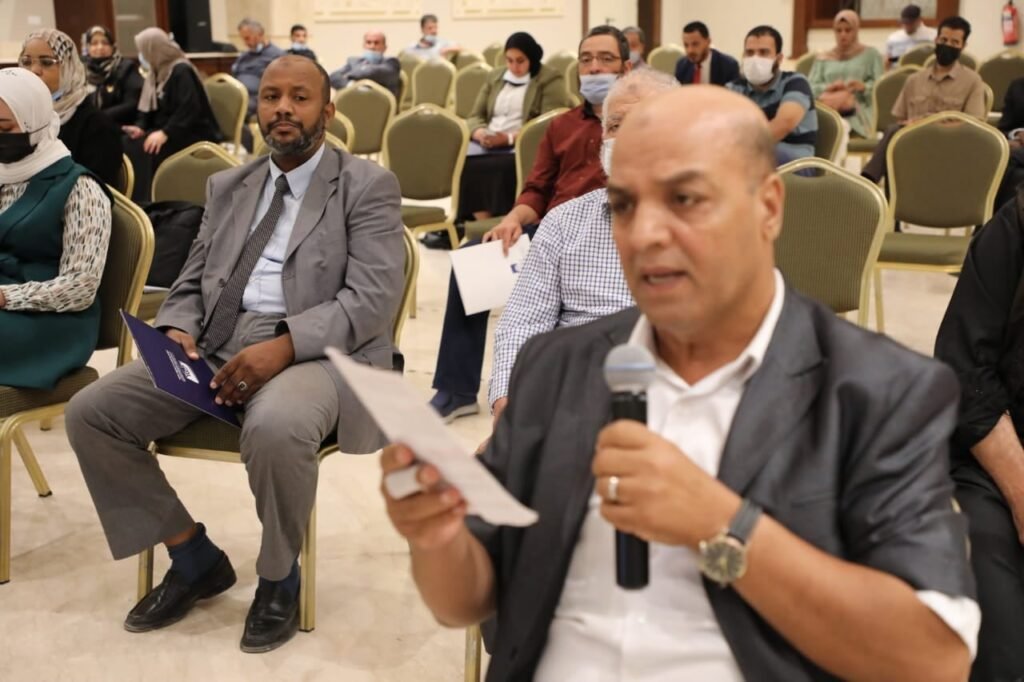The Center organizes a scientific symposium entitled (The current situation in Chad and its impact on Libya and the Sahel and Sahara region)
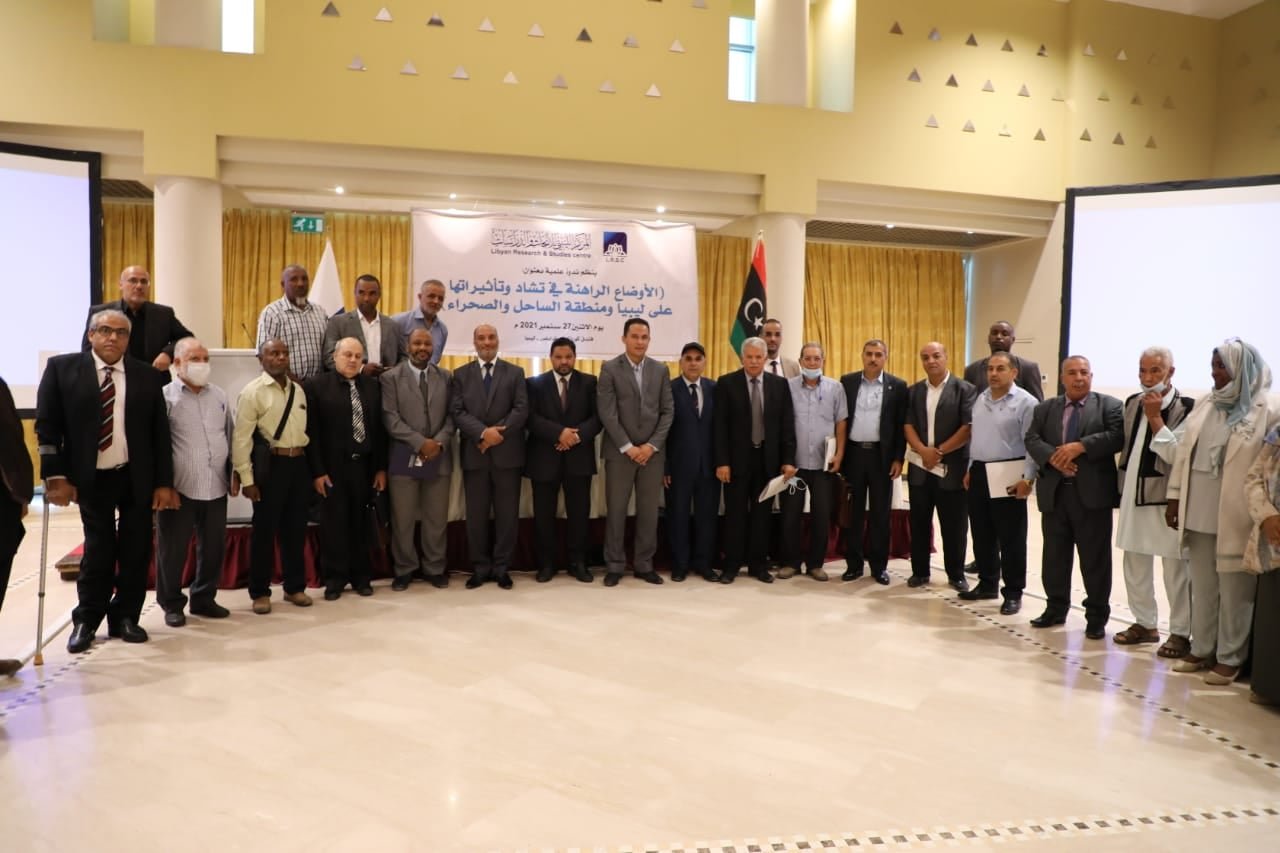
The Libyan Center for Research and Studies organized a scientific symposium entitled (The Current Situation in Chad and Its Impact on Libya and the Sahel and Sahara Region) on Monday, September 27, 2021, at the Corinthia Hotel – Tripoli, as part of its annual scientific activity. The symposium opened its work at exactly ten o’clock in the morning, in the presence of a crowd of researchers, academics and officials from various universities, local research centers and state institutions, in addition to a number of ambassadors and diplomats. The best beginning was clear verses from the Holy Quran, then the participants stood in salute for the Libyan national anthem, after which the opening speeches began, the first of which was by Professor Muhammad Jumaa, Chairman of the Preparatory Committee for the symposium, who welcomed the honorable guests and praised the center for organizing such activities, then a speech by Professor Dr. Al-Bashir Ali Al-Kut, Chairman of the Scientific Committee, after which there was a speech by Professor Jamal Ahmida Duwaish, Vice President of the Libyan Center for Research and Studies, and finally there was a speech by Professor Dr. Saleh Abdullah Hadiya / Undersecretary of the Ministry of Higher Education and Scientific Research, in which he encouraged the center for its scientific activities and its perseverance in shedding light on Such important strategic issues, and thus the opening session ended, and the scientific program of the symposium began with the first scientific session chaired by Professor Dr. Al-Bashir Ali Al-Kut, which was divided into three research papers. The first research paper was by Professor Dr. Nasr Al-Din Al-Bashir Al-Arabi, Professor of Modern and Contemporary History at Al-Marqab University, and the title of his paper was (A Historical Overview of the Sahel and Sahara Region, Roots and Implications). In it, he discussed the reasons for naming this region by that name, the most important tribes that inhabited it, the kingdoms that were established in it, the history of the Islamic conquest of that region extending from the Atlantic Ocean to the Red Sea, and the migrations of Libyans to the countries south of the Sahara throughout history. While the second paper was by researcher Dr. Kamal Al-Shukri (University of Al-Zaytouna-Libya), entitled (The Nature of the Political System and Political Developments in Chad), in which the researcher addressed the political systems that have been established in the State of Chad since its independence, military coups, and opposition movements. The third paper was by researcher Mr. Mahmoud Al-Mahdi Al-Ghatmi from the Libyan Center for Research and Studies, entitled (The International and Regional Position on Recent Developments in Chad), in which the researcher addressed the position The regional position of the neighboring countries, namely Libya, Niger, and Sudan, as well as the international position represented by France as the most active player in the Chadian file, and also the position of the African Union and its way of dealing with the crisis in Chad since the assassination of President Idriss Deby in April 2021. After that, the attendees began a general discussion about the content of the research papers that were presented, and there were many interventions from the honorable attendees, the most important of which was the intervention of His Excellency the former ambassador, Professor Ghaith Salem Saif Al-Nasr, who was Libya’s ambassador to Chad following the resumption of relations between the two countries after the end of the war between them, as well as many other interventions that enriched the symposium. After the end of the first session, Dr. Abdul Nabi Al-Suwaie took over the presidency of the second scientific session, which began with a research paper by Professor Dr. Saeed Abdul Rahman Al-Handari (who did not attend due to urgent circumstances) entitled (Libyan-Chadian relations during the era of Idriss Deby 1990-2010 AD). Professor Jamal Ahmida Duwish gave a summary of the paper on his behalf, while the second paper was by Dr. Ali Muhammad Al-Dumani, Professor of History at Al-Marqab University, entitled (Chad between French interventions and local conflicts 1960-1982 AD). The last research paper in the symposium was by the researcher in African studies, Professor Wissam Saleh Al-Mabrouk, entitled (The impact of developments in the situation in Chad on the Sahel and Sahara region). In his paper, the researcher discussed the beginning of the crisis in Chad after the killing of President Idriss Deby and its development, the security role played by Chad in the Sahel and Sahara region in combating terrorism and jihadist groups with the support of France and the United States, and highlighted the potential effects of the crisis in Chad on the countries of the Sahel and Sahara region. After this paper The last research in the second scientific session opened the floor to questions and comments from the attendees. Finally, Dr. Abdulnabi Al-Suwaie presented the symposium recommendations, which were in six important points, which will find their way to the relevant authorities for reference and guidance. The conclusion was with a comprehensive picture of the participating researchers, the scientific committee, the preparatory committee, and some of the attendees. Then the participants and guests headed to a tea party at the end of the symposium at exactly one o’clock in the afternoon.
